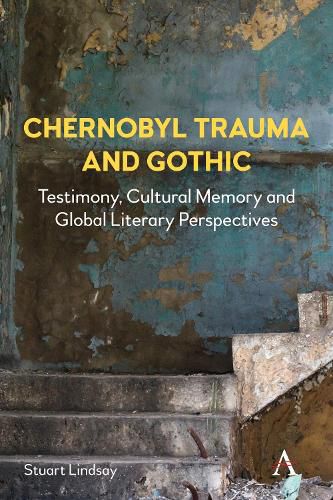Readings Newsletter
Become a Readings Member to make your shopping experience even easier.
Sign in or sign up for free!
You’re not far away from qualifying for FREE standard shipping within Australia
You’ve qualified for FREE standard shipping within Australia
The cart is loading…






A textually rich, historically informed and theoretically sophisticated account of the Chernobyl crisis, its cultural antecedents and its aftermath in global culture.
This scholarly monograph examines the concept of Chernobyl trauma by situating it at the interface of clinical diagnoses of survivors' Post-Traumatic Stress Disorder, their expressions of this trauma in published testimonials translated into English, and through English-language literary explorations of contemporary Soviet trauma. It establishes a new perspective on the intergenerational and international reception of the nuclear disaster, one shaped by Soviet cultural memory as well as Science Fiction and the literary aesthetics of the Gothic.
The monograph analyses first-generation Chernobyl survivors' imaginative reconstruction of events through testimony in the face of the Soviet Party's attempts to sublimate the narrative of the disaster into an official account. It also discusses the ways in which a second generation represents inherited, traumatic memory through a literary diaspora of Chernobyl and Soviet-Kazakh Semipalatinsk nuclear trauma, and how English-speaking writers not personally involved in the disaster engage in its memorialisation through discourses of horror and collective mourning.
$9.00 standard shipping within Australia
FREE standard shipping within Australia for orders over $100.00
Express & International shipping calculated at checkout
Stock availability can be subject to change without notice. We recommend calling the shop or contacting our online team to check availability of low stock items. Please see our Shopping Online page for more details.
A textually rich, historically informed and theoretically sophisticated account of the Chernobyl crisis, its cultural antecedents and its aftermath in global culture.
This scholarly monograph examines the concept of Chernobyl trauma by situating it at the interface of clinical diagnoses of survivors' Post-Traumatic Stress Disorder, their expressions of this trauma in published testimonials translated into English, and through English-language literary explorations of contemporary Soviet trauma. It establishes a new perspective on the intergenerational and international reception of the nuclear disaster, one shaped by Soviet cultural memory as well as Science Fiction and the literary aesthetics of the Gothic.
The monograph analyses first-generation Chernobyl survivors' imaginative reconstruction of events through testimony in the face of the Soviet Party's attempts to sublimate the narrative of the disaster into an official account. It also discusses the ways in which a second generation represents inherited, traumatic memory through a literary diaspora of Chernobyl and Soviet-Kazakh Semipalatinsk nuclear trauma, and how English-speaking writers not personally involved in the disaster engage in its memorialisation through discourses of horror and collective mourning.